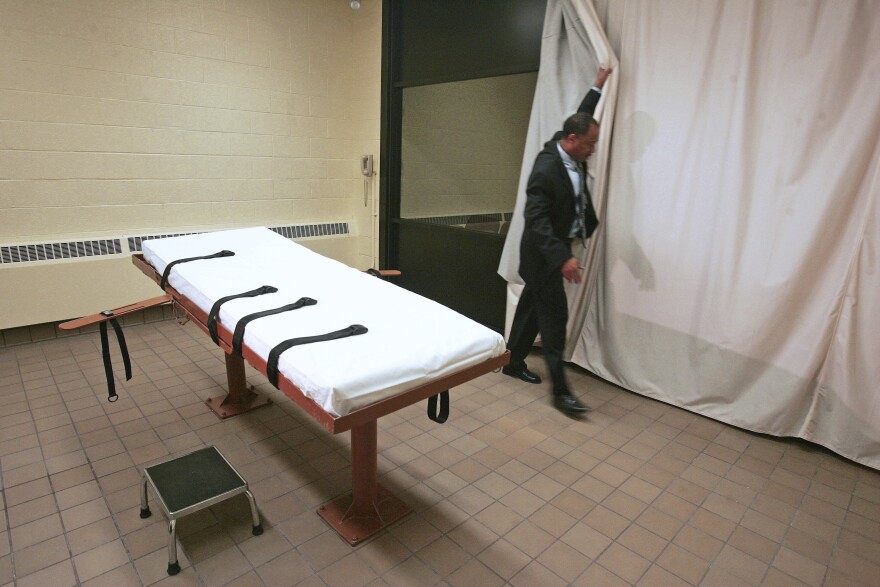Ohio is still struggling to find supplies of lethal injection drugs amid fears it could be cut off from drugs needed for medicinal purposes if their makers learn they're also being used for executions, Gov. Mike DeWine said Wednesday.
That has left the fate of executions in the near future in limbo. They have been on hold for months since DeWine ordered the prisons agency to find new drugs after a federal judge raised concerns about the constitutionality of Ohio's current lethal injection system.
A significant obstacle is the possibility that drugmakers might cut the state off from supplies of drugs used for medicinal purposes if they learn their drugs are also being used for executions, DeWine said.
Multiple drug manufacturers and distributors in recent years have prohibited the use of their products for lethal injection, severely limiting supplies around the country.
But numerous agencies rely on the state's ability to procure those drugs for medicinal purposes, including the departments of Health and Developmental Disabilities, the state schools for the blind and the deaf, and local community alcohol and drug addiction organizations, the governor said.
"If pharmaceutical companies discontinue supplying medications to the state of Ohio for these populations that are currently being served, it would put tens of thousands of our citizens at risk," DeWine said.
Current law only allows for lethal injection as an execution method. DeWine wouldn't address whether he thinks the law should be changed to add alternatives. He, House Speaker Larry Householder and Senate President Larry Obhof — all Republicans — plan to meet soon to discuss the issue.
Obhof wouldn't comment ahead of that meeting, except to say he's approaching it with an open mind.
"I think that the majority of Ohioans support the option of the death penalty in certain cases," he said.
After Ohio started looking for new drugs in 2014, it took the state more than three years to establish its current three-drug lethal injection protocol.
The first drug in Ohio's new system, the sedative midazolam, has been subject to lawsuits that argue it exposes inmates to the possibility of severe pain because it doesn't render them deeply enough unconscious.
Because of Ohio's use of midazolam, federal Judge Michael Merz called the constitutionality of the state's system into question in a Jan. 14 ruling and said inmates could suffer an experience similar to waterboarding.
But because attorneys for death row inmate Keith Henness didn't prove a viable alternative exists, Merz declined to stop the execution.
But DeWine did, postponing Henness' execution from Feb. 13 until Sept. 12, although that would be contingent on the state having a new, court-approved lethal injection system in place. That appears unlikely after DeWine's comments Wednesday.
In February, DeWine said Ohio "certainly could have no executions" during the search for new drugs and the court challenges that would follow adopting a new system. DeWine said Wednesday his position hasn't changed.


